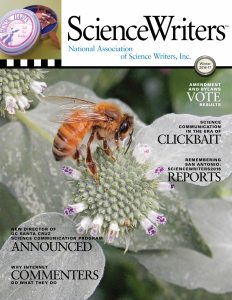By Julian Block
Congratulations, you’ve been awarded a fellowship to the tune of $10,000. Don’t lose part of the largess by needlessly overpaying your self-employment tax.
While you’re liable for income taxes on the $10,000, you’re not liable for self-employment taxes on the amount. How come? Because, like other writers, you aren’t in the business of receiving fellowships.
Therefore, do not report the $10,000 award on Form 1040’s Schedule C, along with, say, payments for articles and book royalties. Including the $10,000 in the figure for profit on Schedule SE means you’ll needlessly overpay self-employment tax to the tune of $1,413, enough to cover most of the cost of a ticket to “Hamilton.”Report properly: Where should the $10,000 entry appear on your tax return? On Line 21 (other income) on page one of Form 1040. As the source of the income, note “fellowship” in the box to the left of where the amount is entered.
If you use a paid tax preparer, don’t assume the preparer knows this wrinkle. They’re not all equally talented; therefore, it’s important to insist that the preparer use Line 21. Also, be aware that, should you and the preparer (or if you’re a do-it-yourselfer and use software) incorrectly enter the $10,000, IRS computers aren’t programmed to catch this kind of mistake.
The law doesn’t require the institution awarding the fellowship to issue you a 1099 for the money. Therefore, it’s important to keep any offer letter and bank-deposit records in the event of an audit.
Maximize deductions: For an in-residence fellowship, that requires you to live temporarily away from home, IRS Publication 463 cites basic rules regarding business-related travel, entertainment, gift, and transportation expenses that can be deductible. Ordinary and necessary expenses are 100% deductible. That is, so long as the expenses are “reasonable.” For example, the IRS doesn’t care whether you rent a hotel, motel, furnished apartment, or turn to Airbnb during the fellowship period. Even a two-bedroom apartment qualifies for a full deduction if the second bedroom is used for work. But IRS might question whether renting a three-bedroom unit is a reasonable expense.
To per diem or to not per diem: Publication 463 cautions that self-employed persons cannot use per-diem expense rates for lodging deductions. Keep records. You can use per-diem rates for meals (whether groceries you prepare yourself, pancakes at IHOP, or enjoying dinner at a five-star restaurant), room service, laundry, dry cleaning, as well as fees and tips for food servers and luggage handlers.
Outlays for meals and entertaining are 50% deductible, so keep records. Otherwise, use the per-diem rate but be aware that this rate varies depending on what part of the country costs are incurred. Some of these allowances are downright chintzy. In Philadelphia, for example, the per diem rate for 2016 and 2017 is a mere $64 per day.
Expenses incurred by a significant other: What if your spouse, partner, or child accompanies you on an in-residence fellowship? Obviously there’s sharing of the ketchup bottle and everything else in the pantry. How do you apportion groceries, rent, and other household items as expenses?
The allowable deduction for lodging remains the same regardless of how many are under the same roof. No deduction for others’ travel to the new location, meals, or entertainment. The possible exception is if they accompany you to a dinner or entertainment with your fellowship sponsor. In this case, the meal and theater tickets are 50% deductible; theater tickets would be a 100% deduction.
Unusual expenses that qualify as deductions: A pre-move trip for apartment hunting prior to the start of a fellowship is fully deductible. Airline traveling being what it is these days, fees paid for extra luggage or oversized bags also qualify as a deduction.
Once at your fellowship location, the IRS doesn’t require you to use the cheapest form of public transportation during your stay unless that’s your preference. Taxis, Uber, a rental car; all are deductible.
The key is to keep track of expenses with receipts or notations in a journal.
When expenses exceed a fellowship award: Expenses that exceed the amount of the fellowship can generate a tax advantage. The excess not only reduces the filer’s net profit figure on Schedule C, it also reduces the amount due for self-employment taxes on Schedule SE. In some cases, it might also reduce estimated payments for federal and state income taxes.
Julian Block is an attorney and author based in Larchmont, N.Y. He has been cited as: “a leading tax professional” (New York Times); “an accomplished writer on taxes” (Wall Street Journal); and “an authority on tax planning” (Financial Planning Magazine). Information about his books is at JulianBlockTaxExpert.com.
(NASW members can read the rest of the Winter 2016-17 ScienceWriters by logging into the members area.) Free sample issue. How to join NASW.

